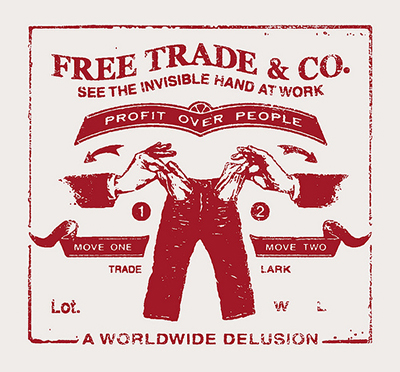
20 years after the North American Free Trade Agreement (NAFTA) went into effect, little interest has been shown until now by the governments of the signatory countries for reopening the trade pact. But a similar agreement between Mexico and the European Union, signed in 1997 and enacted in 2000, is under review and could be expanded.
Three working groups from the European Commission are expected to be in Mexico February 11-13 for discussions that could lead to changes in the current agreement, especially as they pertain to the energy, agricultural, financial services and telecommunications sectors.
Legal reforms promulgated by the Pena Nieto administration and approved by the Mexican Congress are encouraging a new look and possible fine-tuning of the 1997 accord.
Consequently, a preliminary meeting to consider reopening the agreement was held last October in Europe, weeks before the energy reform was debated in and passed by the Mexican Congress, with the firm understanding that Mexico would soon welcome foreign investments in the energy sector.
Following the October meeting, Francisco de Rosenzweig, Economy Ministry undersecretary, spelled out Mexico’s new commercial goals with Europe as liberalizing trade in agricultural and fishery products, as well as expanding the free trade sections on telecommunications, air and sea transportation, and energy.
Spanish members of the European Parliament, particularly Jose Ignacio Salafranca and Alejo Vidral Quadras of the Popular European Party, have been a driving force in the campaign to widen the Europe-Mexico free trade agreement. Vidral Quadras is a former director of a prominent Spanish business organization.
A longtime broker in Europe-Mexico relations, Salafranca headed a controversial 2006 European Union observer delegation that quickly ratified the Mexican presidential election, even as charges of fraud and protests were breaking out. Later, Salafranca spearheaded attempts to water down a 2007 European Parliament resolution that condemned women’s murders in Mexico and Latin America.
Salafranca recently praised the Mexico-Europe free trade pact for having a “successful history” marked by “spectacular increases” in investments and trade, all to the tune of about $108 billion.
In the banking sector alone, Mexico has emerged as a very profitable place of business for Spanish banks. Currently Mexico’s largest provider of financial services, BBVA Bancomer reported last week that its Mexican net profits ringed up in the neighborhood of $2.5 billion for 2013.
“It was a spectacular year,” gushed Javier Malagon, general director of finance for the Spanish-owned bank. Worldwide, BBVA’s Mexico operations account for 38 percent of the bank’s total earnings.
Another Spanish-owned bank with big business in Mexico, Santander, also chalked up a stellar 2013. According to the latest numbers, Santander raked in nearly $2 billion in Mexican earnings last year, for an amount 17.1 percent higher than 2012’s figures and equaling 10 percent of the bank’s entire global earnings.
Siim Kallas, European Commission vice-president, said February’s meeting in Mexico will produce a report that includes an assessment of the current trade pact and projections for an updated one. The Mexico talks, Kallas said, would address issues of public bidding, competition, investment protections, energy investment, dispute resolutions, and sustainable development.
“The Commission will recommend opening the negotiations depending on how the exploratory conversations go,” Kallas added.
“We have to see what is the level of interest, the results of the report and the evaluations. If it is decided to reform the treaty, the European Commission could be in favor of improving the chapter on financial services and including a chapter on sustainable development with clear, binding commitments.”
A few European lawmakers have openly criticized a possible expansion of the Mexico-Europe pact, or urged more emphasis on human rights clauses.
Franziska Keller, member of the European Parliament’s Green Group, said human rights should take precedence “before deepening commercial relationships” with Mexico. Keller, who has visited Mexico to pressure for justice in the 2010 murder of Finnish activist Jyri Jaakkola in the southern state of Oaxaca, also criticized the so-called drug war and the flow of dirty cash in the Mexican economy.
Speaking on behalf of the United Left/Norse Greens Group, legislator Helmut Scholz rejected a treaty revision that did not “strengthen labor rights, environmental protection, or struggle against excesses and criminality in the financial sector.”
At a January meeting in Brussels, Scholz implored Kallas to consider the issue of organized crime and thousands of murders in Mexico. “You will also have to come away with opportune conclusions about the effect of NAFTA on Mexico,” Scholz said.
The possible revision of the Mexico-Europe free trade agreement comes at the same time when the Mexican government is busy courting Asian and the Pacific nations for both enhanced bilateral deals and passage of the controversial, multilateral Trans-Pacific Partnership.
In this context, Mexico hosted last month the 22nd annual meeting of the Asia-Pacific Parliamentary Forum in Puerto Vallarta, Jalisco, where the city’s sentry post on the Pacific symbolizes the Mexican nod to the East.
Mexico, Senator Teofilo Torres Corzo said in the run-up to the forum, will be an excellent place to conduct business and tourism, while simultaneously “attracting foreign investments and creating jobs.”
A subsequent, post-forum meeting of Mexican senators with Japanese politicians perhaps exemplified the spirit prevailing in the governing circles of Tokyo and Mexico City.
At the conclusion of the meeting in the Mexican capital, a group of Japanese actors costumed as 17th century Samurais led the lawmakers in a gutteral chant and fist-raising salute that honored the growing ties between their countries.
Sources: La Jornada, January 30 and 31, 2014. Articles by Roberto Gonzalez Amador. Canal del Congreso (Mexico), January 31, 2014. Proceso/Apro, January 24, 2014. Article by Marco Appel. Tribuna de la Bahia, January 13, 2014.
(Free Trade image is not part of the original article by Frontera NorteSur. Image by Christopher Dombres.)

February 03, 2014